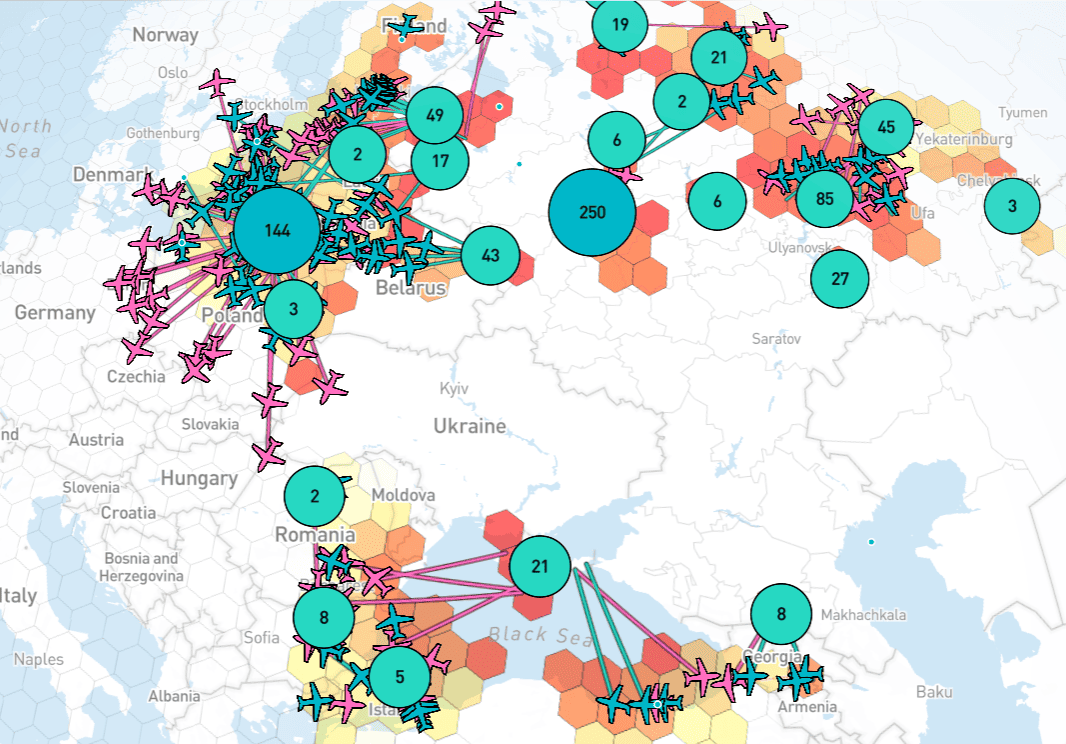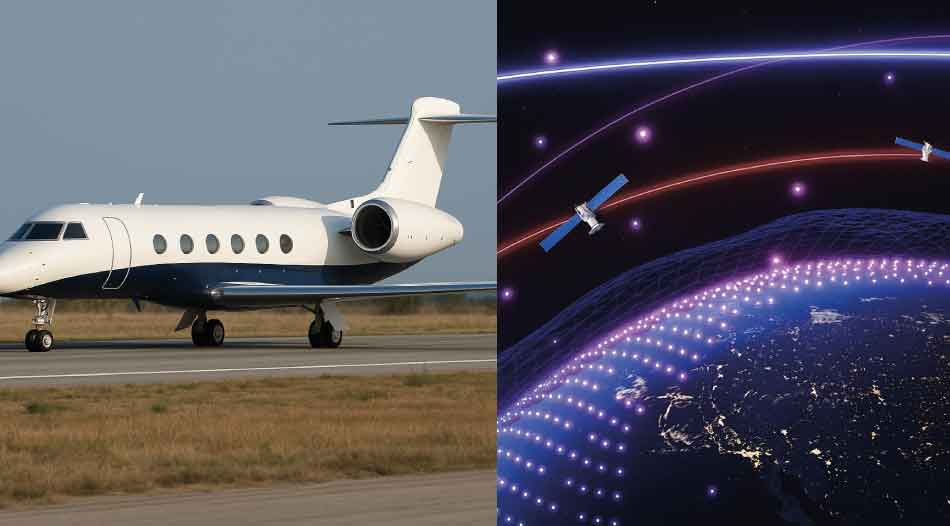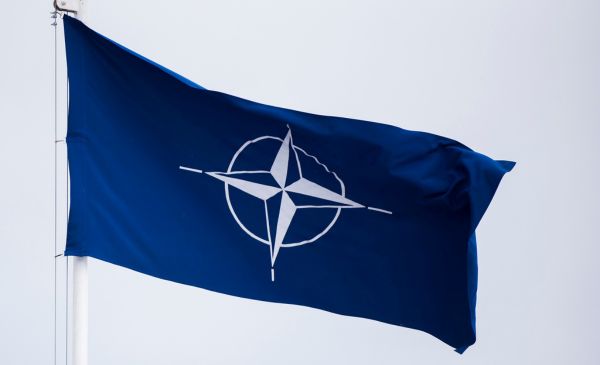How escalating satellite navigation interference threatens aviation, maritime security, and Europe’s strategic resilience
On Sunday, August 31, 2025, European Commission President Ursula von der Leyen was en route to Plovdiv, Bulgaria, when her aircraft experienced a sudden GPS jamming event as it approached southern Bulgarian airspace. The disruption grew so severe that pilots were forced to rely on paper maps and ground-based navigation aids to land the plane safely. The European Commission’s spokesperson Arianna Podestà officially confirmed the jamming, relaying that Bulgarian authorities believed the cause to be “blatant interference by Russia”. While the aircraft landed safely, the incident highlights a worrying escalation in the hybrid warfare domain.
What is GPS jamming?
GPS jamming refers to the deliberate or accidental disruption of Global Positioning System (GPS) signals, preventing receivers from accurately determining their position, speed, or timing. Unlike system failures, jamming is caused by external signals that overpower or interfere with satellite transmissions. It can be continuous, intermittent, or involve spoofing, where false signals trick receivers into showing the wrong position. Global navigation relies on multiple satellite systems, including China’s BeiDou (BDS), Europe’s Galileo, Russia’s GLONASS, USA’s GPS, India’s IRNSS, and Japan’s QZSS. Originally developed for military use, jamming now threatens civil aviation, maritime navigation, and critical infrastructure, as seen in the von der Leyen flight incident. Detecting interference and having backup systems is key to staying safe and operational.
Political responses & strategic countermeasures
-
EU reaction: Commission spokesperson Podestà emphasized the incident as emblematic of daily threats faced by Eastern EU members and reaffirmed the EU’s ongoing commitment to ramp up defence capabilities and support for Ukraine.
-
Satellite enhancements: EU Defence Commissioner Andrius Kubilius announced plans to deploy additional satellites into low Earth orbit, aiming to bolster the EU’s capacity to detect and mitigate GPS interference.
-
Kremlin denial: Kremlin spokesperson Dmitry Peskov denied the allegations, stating to the Financial Times—“Your information is incorrect”
Escalating GPS interference across Europe
The Bulgarian Air Traffic Services Authority (BULATSA) has reported a steady surge in jamming and spoofing since Russia’s full-scale invasion of Ukraine in 2022. These disruptions have increasingly targeted the eastern flank of Europe, making it the global epicenter of such activity.
EU Transport spokesperson Anna-Kaisa Itkonen placed the von der Leyen incident in this broader context, warning that interference is now “almost daily” in the region and carries “serious repercussions for maritime and air transport, and for the economy as a whole.” In June 2025, thirteen EU member states formally urged the Commission to deliver concrete measures to safeguard navigation, particularly in aviation and maritime sectors.
The European Union Aviation Safety Agency (EASA) and the International Air Transport Association (IATA) convened a special conference in 2024 to address spoofing incidents, cautioning that they could undermine flight safety on a systemic level. Brussels, working with EASA, Eurocontrol, national regulators, and service providers, is now preparing a dedicated aviation security plan. This includes technical countermeasures and the possibility of sanctions against companies involved in GPS interference.

A map showing Europe’s key areas affected by GPS signal interference. Source: Infinidome
Aviation and maritime safety under pressure
Von der Leyen’s flight was not the only case in which jamming directly affected civil aviation. In January 2025, a Ryanair flight to Vilnius was diverted to Warsaw after losing navigation reliability due to interference. Estonia, Finland, and Lithuania have repeatedly accused Russia of employing electronic warfare tactics to disrupt civilian aviation systems. Finland alone documented almost 2,800 interference cases in 2024, compared to just 200 the previous year. Beyond Europe, a tragic example was the crash of an Azerbaijan Airlines flight in Kazakhstan, which killed 38 people amid reports of GPS disruption linked to Russian air defence activity in the vicinity. The OPS Group, in its 2024 safety review, noted a 500% increase in spoofing incidents, with more than 70% of surveyed flight crews expressing high or extreme concern. Hotspots such as the Eastern Mediterranean and the Black Sea saw more than 1,000 daily flight disruptions in the summer of 2024. At the 14th Air Navigation Conference of the International Civil Aviation Organisation (ICAO) in Montreal this year, delegates acknowledged the risks and called for improved guidance for pilots, stronger international coordination, and the creation of a global contingency plan for GNSS outages. The threat extends beyond aviation. Data from maritime analytics firm Windward shows that between June 15–18, an average of 972 ships per day experienced jamming – with the highest daily figure reaching 1,155 – within Qatari territorial waters, along shipping lanes between Iraq, Kuwait, and the Strait of Hormuz, and in the traffic separation lanes during Hormuz transits.
Recommendations for resilience
Global Navigation Satellite System (GNSS) disruption is no longer a rare event — it is a persistent risk. To stay resilient, organizations should focus on:
-
Training and preparedness: Train crews to detect GNSS disruption and follow clear response procedures, including when to proceed or delay a journey.
-
Backup and redundancy: Use multi-constellation receivers (GPS, Galileo, BeiDou, GLONASS) and backup systems like inertial navigation or eLORAN where available.
-
Technology upgrades: Equip aircraft and vessels with anti-jamming and anti-spoofing tools such as CRPA antennas, filters, and monitoring systems.
-
Reporting and information sharing: Report incidents to national and international authorities to improve awareness and enable coordinated responses.
How can organizations protect themselves against GPS jamming and spoofing?
ACK3 provides tailored risk assessments, training programs, and crisis response planning to help organizations strengthen resilience. We connect technical solutions with operational and strategic decision-making, ensuring clients are prepared for disruption before it happens.







